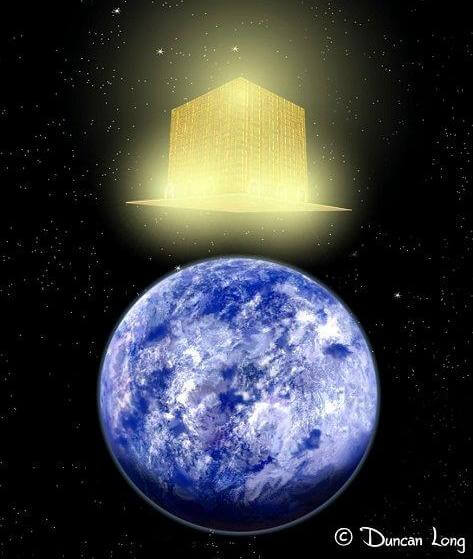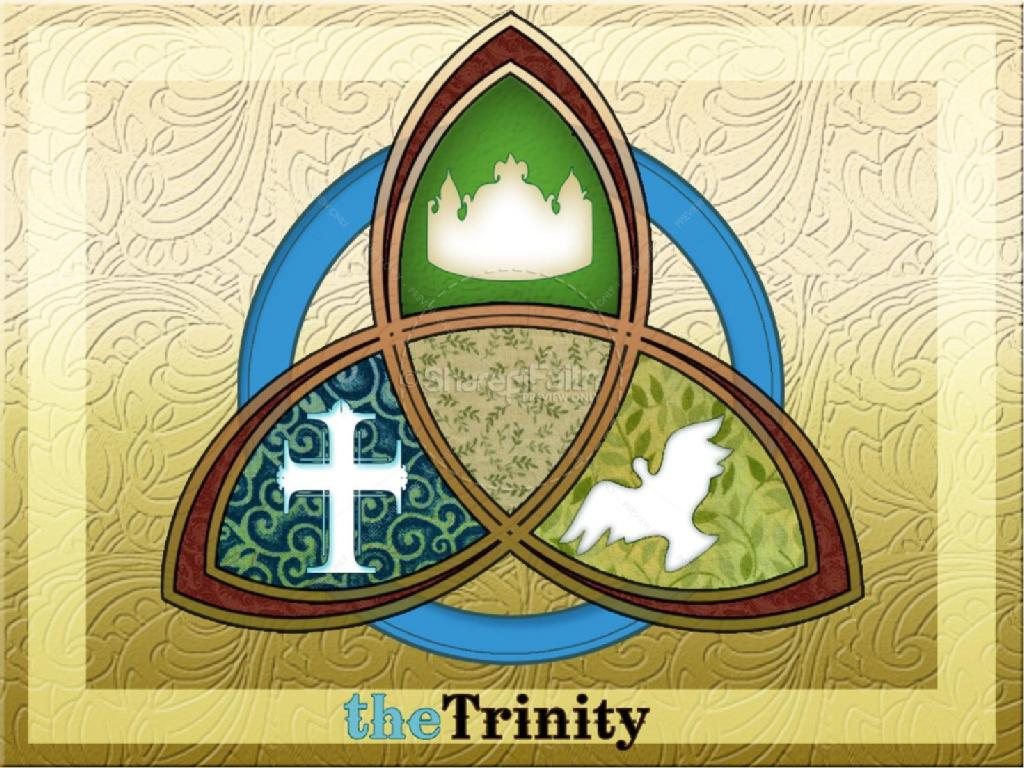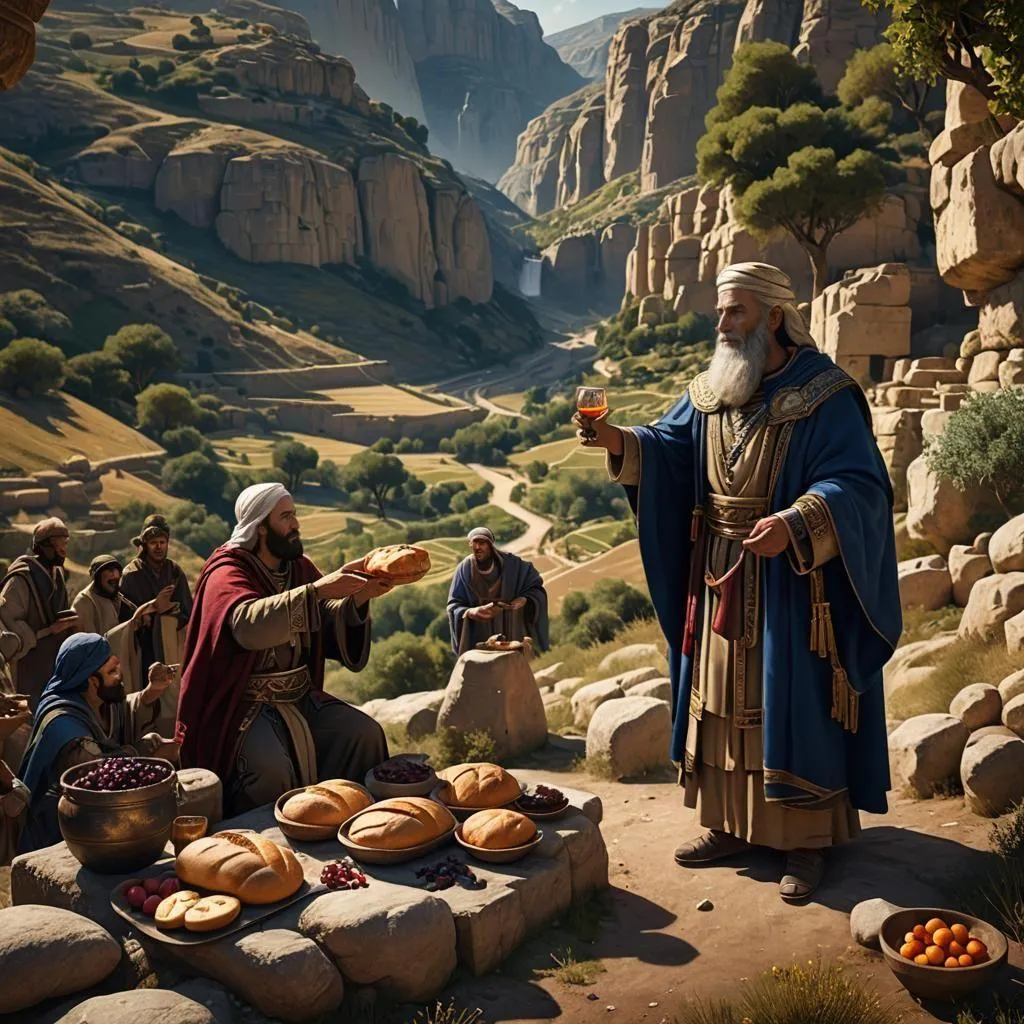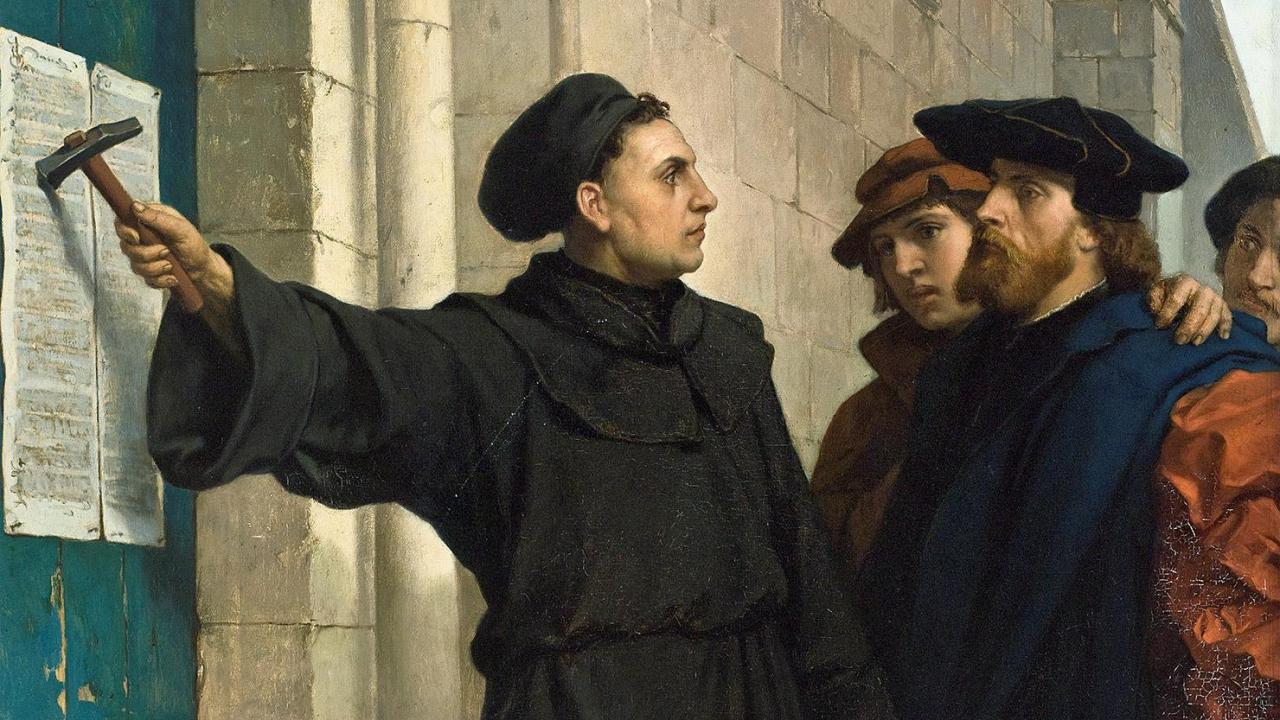The Coming of Jesus: The Olivet Discourse – Part 2

Series Index
- The Coming of Jesus: Introduction
- The Coming of Jesus: Daniel's 70 Weeks
- The Coming of Jesus: Coming on the clouds
- The Coming of Jesus: The Olivet Discourse – Part 1
- The Coming of Jesus: The Olivet Discourse – Part 2
- The Coming of Jesus: Revelation Fulfilled?
- The Coming of Jesus: Our Future Hope - What Now?
Welcome to Part Two of the Olivet Discourse! It’s been a while, so we’ll pick up right where we left off with Matthew 24 verse 15 onwards, after a small recap of the chapter so far.
The Olivet Discourse begins with the disciples admiring the architecture of the temple in Jerusalem. Jesus responds to this by telling them that it will all be thrown down and destroyed, to the point that not one stone will be left on another. Later on, when they are sat on the Mount of Olives, Jesus’ disciples come to him and ask “when will this happen?” and “what will be the sign” that all of this is about to commence?
If we look at the account in Mark’s Gospel, we can see that it was actually only Peter, James, John and Andrew who came to speak with Jesus privately about these things (Mark 13:3), thus making the audience that Jesus was addressing quite specific! What follows is a long prophetic monologue from Jesus detailing what happens in the lead up to the temple being destroyed, what to expect and what to do they see it about to happen. Which is where we pick up this study.
From verse 15 we start to see what happens after the initial signs and “birth pangs” are finished – now it’s no longer about looking towards an event; now it’s about the event itself! The main show, as it were: the “desolating sacrilege!”
Matthew 24:15-18
So when you see the desolating sacrilege standing in the holy place, as was spoken of by the prophet Daniel (let the reader understand), then those in Judea must flee to the mountains; the one on the housetop must not go down to take what is in the house; the one in the field must not turn back to get a coat.
Now Matthew’s Gospel is traditionally understood to have been written to a Jewish audience due to the writing style and linguistic phrases used that were typical of Jewish thought and understanding. This is important to remember when reading the parenthesis in verse 15 which simply states “let the reader understand” as first century Jews would have been very familiar with Daniel’s prophecy more than Gentiles or Jewish converts, for example. This is where the parallel accounts of this passage in the other Gospel account can help us, as we should always endeavour to let Scripture interpret Scripture where possible, rather than jumping to conclusions or assuming things.
So we’ll turn to Luke’s Gospel, which is the account typically understood to have been written to a primarily Gentile (non-Jewish) audience, and so it contains different phrases and wording which can often clarify certain things written in Matthew, for example.
Luke 21:20-22
When you see Jerusalem surrounded by armies, then know that its desolation has come near. Then those in Judea must flee to the mountains, and those inside the city must leave it, and those out in the country must not enter it; for these are days of vengeance, as a fulfillment of all that is written.
The “desolating sacrilege” and the “holy place” spoken of in Matthew can be made clearer for us by Luke’s plainer language of the event as being attacking armies (desolating sacrilege) surrounding Jerusalem (the holy place)!
It’s also important to note that Luke adds an additional comment in verse 22 which Matthew and Mark omit: that these are the “days of vengeance” which fulfills “all that is written”. Written where? The Old Testament. This is the “great and terrible day of the Lord” which had long been prophesied in the Scriptures, which cannot be another time in history, other than the time in which Jesus is speaking of!
The book of Malachi speaks of the coming of the Lord to his people, and the messenger which he will send first (Mal 3:1), which will lead up to God bringing judgement on the nation (Mal 3:5). The book ends with a prophetic statement about this “Day” which says more explicitly that God will send “Elijah” to his people before the judgement comes.
Malachi 4:5
Lo, I will send you the prophet Elijah before the great and terrible day of the Lord comes.
Jesus confirms this as the time of Malachi’s fulfillment in Matt 11:7-11 where he says that John the Baptist is “the one about whom it is written” and then even clearer in verse 13 where Jesus says:
For all the prophets and the law prophesied until John came; and if you are willing to accept it, he is Elijah who is to come.
Don’t miss the other important part of this verse: that “all the prophets and the law prophesied until John came” – ALL of the Scriptures prophesied until John came!
This is it now, this is the end of the age; the end of the Old Covenant. Jesus was here to bring about the Kingdom and the New Covenant; to purify his people and bring judgement on those who refused him: the great and terrible day of the Lord!
Not only is John the final prophet of the Old Covenant bringing the message that God was coming, as Malachi and other prophets of old wrote about, but this also signified that judgement was upon the people of Israel. The book of 2 Peter also makes a link to Malachi 3:2 where God is spoken of as being like a refiner’s fire when he comes during this time. This fits Peter’s theme when he writes about the Day of the Lord in 1 Peter 1:6-7 and 2 Peter 3:10. You can read more about this connection, and a balanced view of 2 Peter 3 in terms of the “new heavens and new earth” and the probable nature of heaven, in an essay here. In short, it’s more in line with much of the rest of the New Testament texts in that Creation is to be renewed and reconciled, rather than scrapped and rebuilt.
The prophet Joel also spoke of this “Day” and that this meant it was the “last days” - a fact which Peter confirms in his famous sermon on the day of Pentecost (Acts 2).
Joel 2:31 says that “[t]he sun shall be turned to darkness, and the moon to blood, before the great and terrible day of the Lord comes.” Peter ties this prophecy to the Pentecost event when the Holy Spirit was poured out on them, by telling the people watching that “this is what was spoken through the prophet Joel” (Acts 2:16) and then goes on to quote the rest of Joel’s prophecy, beginning with “In the last days…” and ending with the Day of the Lord.
These signs in Joel about the sun being darkened and the moon turning to blood etc, is the same imagery which Jesus uses in his Olivet Discourse with his disciples (cf. Mark 13:24,25; Matt 24:25; Luke 21:25), so we can see that all of these prophetic statements are linked together as one event.
In Luke’s Gospel he calls this “the time of the Gentiles”. This is when Jerusalem will be trampled by Gentiles; Jews will be killed, captured and enslaved until the “time of the Gentiles” is “fulfilled” (Luke 21:23-24 – contrast this with Revelation 11:1-2).
As we see from history, the Gentiles which trampled Jerusalem were the Romans. It was the Roman armies which surrounded the city, who burned it and eventually destroyed the temple, fulfilling all that Jesus had warned his disciples about.
In all three accounts of the “desolation”, Jesus warns his listeners to “flee to the mountains” and if you were in the city, to leave it; if you were outside, to stay out! The early Christians took this seriously and, as is well documented in the historical record, they fled! This is what is known as the “flight to Pella” (Mark 13:14-16; Matt 24:16-18; Luke 21:21).
Pella was about 75 miles north of Jerusalem, which, according to Google Maps, would take you 26 hours to walk! That may seem a long way to go, but this is exactly what the Jerusalem Church did as they heeded the warnings from Jesus, and also from an angelic encounter telling them where to flee to!
The people of the Church in Jerusalem were commanded by an oracle given by revelation before the war to those in the city who were worthy of it to depart and dwell in one of the cities of Perea which they called Pella. To it those who believed on Christ traveled from Jerusalem, so that when holy men had altogether deserted the royal capital of the Jews and the whole land of Judaea…"
Eusebius, Church History 3, 5, 3
For when the city was about to be taken and destroyed by the Romans, it was revealed in advance to all the disciples by an angel of God that they should remove from the city, as it was going to be completely destroyed. They sojourned as emigrants in Pella, the city above mentioned in Transjordania. And this city is said to be of the Decapolis."
Epiphanius, On Weights and Measures 15
So you see, these were not warnings for some far off future event in our lifetimes, but were a very real warning made my Jesus to very real people who were going to live through this terrible time roughly 40 years later (from their perspective)!
The “Rapture”?
Taking note of what happened with the Jerusalem Church being forewarned by an angel to flee the impending disaster, could this not be what Jesus was talking about in Matt 24:31?
“And he will send out his angels with a loud trumpet call, and they will gather his elect from the four winds, from one end of heaven to the other.”
His elect were gathered by an angel and removed to safety before the great tribulation came upon the holy city!
Finally, towards the end of this great prophecy by Jesus, he concludes with some parables encouraging his disciples to be watchful and not lose hope or faith. Likening this event to a fig tree sprouting when the seasons change, so the disciples must be mindful of all these signs foretelling when the end is near.
Matthew 24:33-34
So also, when you see these things taking place, you know that the kingdom of God is near. Truly I tell you, this generation will not pass away until all things have taken place. Heaven and earth will pass away, but my words will not pass away.
Let’s just break it down a little here:
“when you see these things taking place”
What “things”? The signs of war, armies surrounding the city, “portents” in the sky. Which then means that “the kingdom of God is near.”
“this generation will not pass away until all things have taken place”
Who will not “pass away”? The generation of people Jesus was speaking to at the time. Not only that, but they won’t pass “until all things have taken place” - the “things” previously mentioned.
“Heaven and earth will pass away, but my words will not pass away.”
This is the part that trips most people up. It’s the “a-ha!” of the Futurist view in that they say “heaven and earth are still here, therefore it’s not happened yet!”
Much has been written about this1 and the “new heavens and new earth” but personally, and arguably contextually, this phrase used by Jesus seems more like hyperbole to emphasise his point that these things were definitely going to happen and nothing could stop it.
The New Heavens and the New Earth
This could very well be its own article since much has been written about this topic. But in relation to Jesus’ words in Matt 24:33, there are various views, ranging from it being symbolic of the Old Covenant and the New, to it being simply a renewal of this current Earth through the transforming power of the Gospel and the Church.
I'll probably cover this topic in more detail again, so for now I'll present a couple of interpretations — one from the Early Church, and another from more ‘recent’ history:
"For if the heavens are to be changed, assuredly that which is changed does not perish, and if the fashion of the world passes away, it is by no means an annihilation or destruction of their material substance that is shown to take place, but a kind of change of quality and transformation of appearance. Isaiah also, in declaring prophetically that there will be a new heaven and a new earth, undoubtedly suggests a similar view."
Origen (2nd Century), Principles, 2:6:4
"Thus there was a final end to the Old Testament world: all was finished with a kind of day of judgment, in which the people of God were saved, and His enemies terribly destroyed.”
Jonathan Edwards (1739), History of Redemption, vol. i. p. 445
"And the dissolution of the Jewish state was often spoken of in the Old Testament as the end of the world. But we who belong to the gospel-church, belong to the new creation; and therefore there seems to be at least as much reason, that we should commemorate the work of this creation, as that the members of the ancient Jewish church should commemorate the work of the old creation.”
Jonathan Edwards (1739), The Perpetuity and Change of the Sabbath (The Works of Jonathan Edwards, vol 2)
The Desolation
One of our earliest extra-Biblical sources for showing how the destruction of Jerusalem was seen as the fulfilment of Matt 24 etc. amongst the early Christians comes from the Epistle of Barnabas (not the be confused with the much later 14th century forgery called “the gospel of Barnabas”).
This, along with other early texts known as “the Didache” and the "Shepherd of Hermas”, were books commonly given to new converts to read during the first century (Shepherd was even considered as Canon by various Early Church Fathers, such as Irenæus).
As an intriguing side-note, the 4th century “Codex Sinaiticus” included Barnabas and The Shepherd alongside the rest of the New Testament books in its canon.
Barnabas even links the 70AD event to the completion of “the Week” which harkens back to Daniel’s prophecy, as did many other early Christian writers over the first four centuries, such as: Clement of Alexandrea, Origen, Tertullian, and Athanasius.
You can see why they thought this way if you contrast Daniel 12:4, in which the angel tells Daniel to “seal up” his words “until the time of the end” with Revelation 22:10 where the angel tells John: “Do not seal up the words of the prophecy of this book, for the time is near.”
Barnabas 16:5-6
"Again, it was revealed how the city and the temple and the people of Israel should be betrayed … For it is written, ‘And it shall come to pass, when the week is completed, the temple of God shall be built...in the name of the Lord.’ I find...that a temple does exist. Having received the forgiveness of sins…in our habitation God dwells in us….This is the spiritual temple built for the Lord.”
The Temple Destroyed
So let's look at how it all “came to pass” according to the historical record by Josephus.
I’ve included some large quotes here from Josephus, documenting the destruction of the temple. It might seem a bit lengthy, but I thought it would be worth it in order to help in understanding just how great and terrible this Day really was!
Then one of the soldiers, without awaiting any orders and with no dread of so momentous a deed, but urged on by some supernatural force, snatched a blazing piece of wood and, climbing on another soldier's back, hurled the flaming brand through a low golden window that gave access, on the north side, to the rooms that surrounded the sanctuary. As the flames shot up, the Jews let out a shout of dismay that matched the tragedy; they flocked to the rescue, with no thought of sparing their lives or husbanding their strength; for the sacred structure that they had constantly guarded with such devotion was vanishing before their very eyes.
In Revelation 17:16-17 we see that “the whore” – ie. Jerusalem, will be hated by the Beast and will be motivated by God to fulfil their purposes to “burn her up with fire” as Josephus seems to indicate by saying the Roman soldiers were “urged on” by “supernatural force” to burn the temple, despite orders from their superiors to the contrary.
Crowded together around the entrances, many were trampled down by their companions; others, stumbling on the smoldering and smoked-filled ruins of the porticoes, died as miserably as the defeated. As they drew closer to the Temple, they pretended not even to hear Caesar's orders, but urged the men in front to throw in more firebrands. The rebels were powerless to help; carnage and flight spread throughout.
Most of the slain were peaceful citizens, weak and unarmed, and they were butchered where they were caught. The heap of corpses mounted higher and higher about the altar; a stream of blood flowed down the Temple's steps, and the bodies of those slain at the top slipped to the bottom.
Caesar … entered the building with his generals and looked at the holy place of the sanctuary and all its furnishings, which exceeded by far the accounts current in foreign lands and fully justified their splendid repute in our own.
Most of them were spurred on, moreover, by the expectation of loot, convinced that the interior was full of money and dazzled by observing that everything around them was made of gold … Caesar dashed out to restrain the troops, [but someone] pushed a firebrand, in the darkness, into the hinges of the gate. Then, when the flames suddenly shot up from the interior … no one was left to prevent those outside from kindling the blaze.
While the Temple was ablaze, the attackers plundered it, and countless people who were caught by them were slaughtered. There was no pity for age and no regard was accorded rank; children and old men, laymen and priests, alike were butchered; every class was pursued and crushed in the grip of war, whether they cried out for mercy or offered resistance.
… such was the height of the hill and the magnitude of the blazing pile that the entire city seemed to be ablaze; and the noise - nothing more deafening and frightening could be imagined.
This burning of the city and the temple is also what we can see in Revelation 18:9 which talks about the great city Babylon being ablaze, where the fires could be seen from afar by onlookers.
There were the war cries of the Roman legions as they swept onwards en masse, the yells of the rebels encircled by fire and sword, the panic of the people who, cut off above, fled into the arms of the enemy, and their shrieks as they met their fate. The cries on the hill blended with those of the multitudes in the city below; and now many people who were exhausted and tongue-tied as a result of hunger…
The Temple Mount, everywhere enveloped in flames, seemed to be boiling over from its base; yet the blood seemed more abundant than the flames and the numbers of the slain greater than those of the slayers. The soldiers climbed over heaps of bodies as they chased the fugitives.
Briefly looking back to Jesus’ other warnings about earthquakes (Matt 24:7), apart from those mentioned in Part One of this study, more happened later on during the siege on Jerusalem. This also ties in more with what is said in Revelation 11:13:
At that moment there was a great earthquake, and a tenth of the city fell; seven thousand people were killed in the earthquake, and the rest were terrified and gave glory to the God of heaven.
“Taking advantage of the panic caused by the earthquake, the Idumeans, who were in league with the Zealots, who occupied the temple, succeeded in effecting an entrance into the city, when a fearful massacre ensued. 'The outer court of the temple,' says Josephus, 'was inundated with blood, and the day dawned upon eight thousand five hundred dead.'”
— Flavius Josephus, Book IV, Chapter 5
To be continued…
To wrap up this before it gets far too long and wordy (there’s just so much more that could be said here!) I will finish with showing how accurate Jesus’ prophecy really was, down to the letter: when he said “not one stone will be left upon one another” he meant it! The Romans actually dug up the foundation of the temple!
“NOW as soon as the army had no more people to slay or to plunder, because there remained none to be the objects of their fury, (for they would not have spared any, had there remained any other work to be done,) Caesar gave orders that they should now demolish the entire city and temple, but should leave as many of the towers standing as were of the greatest eminency; that is, Phasaelus, and Hippicus, and Mariamne; and so much of the wall as enclosed the city on the west side. This wall was spared, in order to afford a camp for such as were to lie in garrison, as were the towers also spared, in order to demonstrate to posterity what kind of city it was, and how well fortified, which the Roman valor had subdued; but for all the rest of the wall, it was so thoroughly laid even with the ground by those that dug it up to the foundation, that there was left nothing to make those that came thither believe it had ever been inhabited. This was the end which Jerusalem came to by the madness of those that were for innovations; a city otherwise of great magnificence, and of mighty fame among all mankind.”
– Flavius Josephus. The Works of Flavius Josephus. Book VII. Chapter 1.1
I will address more of the connections and parallels with the Jewish War, the Olivet Discourse and Revelation in the next part of this study. Stay tuned!
Further Reading:
- 1“REVELATION: All Things New” Steve A. Robertson, pp. 105ff
- Flavius Josephus. The Works of Flavius Josephus. Translated by. William Whiston, A.M. Auburn and Buffalo. John E. Beardsley. 1895
- Ancient Christian Writers, The Didache, James A. Kleist (ed.) [https://books.google.co.uk/books?id=J9hETdMVwowC&lpg=PA13&ots=Ulfqn-kt4s&dq=epistle%20of%20barnabas%20given%20to%20new%20converts&pg=PA13#v=onepage&q=epistle%20of%20barnabas%20given%20to%20new%20converts&f=false]
- http://www.academia.edu/2057245/Fleeing_Forward_the_Departure_of_Christians_from_Jerusalem_to_Pella
- http://www.redcliffe.org/Portals/0/Content/Documents/Centres/Encounters/37/Burning_up_or_Being_Renewed_37.pdf
- http://www.theopedia.com/gospel-of-luke
- http://www.theopedia.com/gospel-of-matthew
- https://en.wikipedia.org/wiki/Flight_to_Pella
- https://en.wikipedia.org/wiki/Church_History_(Eusebius)
- http://www.preteristarchive.com/StudyArchive/p/pella-flight.html
- http://www.sacred-texts.com/isl/gbar/
- http://www.earlychristianwritings.com/barnabas.html
- http://ccat.sas.upenn.edu/rak/publics/barn/barndiss01.htm
- http://www.earlychristianwritings.com/shepherd.html
- http://www.earlychristianwritings.com/didache.html
- http://www.newadvent.org/fathers/250105.htm
- www.eyewitnesstohistory.com/pfjewishtemple.htm
- http://georgekouri.com/the-early-church-fathers-and-the-last-days-of-the-jewish-age
- http://www.perseus.tufts.edu/hopper/text?doc=J.+BJ+7.1&fromdoc=Perseus%3Atext%3A1999.01.0148
- http://www.preteristarchive.com/JewishWars/timeline_theological.html
Leave a comment Like Back to Top Seen 1.9K times Liked 2 times
Enjoying this content?
Support my work by becoming a patron on Patreon!
By joining, you help fund the time, research, and effort that goes into creating this content — and you’ll also get access to exclusive perks and updates.
Even a small amount per month makes a real difference. Thank you for your support!
Subscribe to Updates
If you enjoyed this, why not subscribe to free email updates and join over 864 subscribers today!
My new book is out now! Order today wherever you get books
Recent Posts
Luke J. Wilson | 19th August 2025 | Fact-Checking
A poetic post has been circulating widely on Facebook, suggesting that our anatomy mirrors various aspects of Scripture. On the surface it sounds inspiring, but when we take time to weigh its claims, two main problems emerge. The viral post circulating on Facebook [Source] First, some of its imagery unintentionally undermines the pre-existence of Christ, as if Jesus only “held the earth together” for the 33 years of His earthly life. Second, it risks reducing the resurrection to something like biological regeneration, as if Jesus simply restarted after three days, instead of being raised in the miraculous power of God. Alongside these theological dangers, many of the scientific claims are overstated or symbolic rather than factual. Let’s go through them one by one. 1. “Jesus died at 33. The human spine has 33 vertebrae. The same structure that holds us up is the same number of years He held this Earth.” The human spine does generally have 33 vertebrae, but that number includes fused bones (the sacrum and coccyx), and not everyone has the same count. Some people have 32 or 34. More importantly, the Bible never says Jesus was exactly 33 when He died — Luke tells us He began His ministry at “about thirty” (Luke 3:23), and we know His public ministry lasted a few years, but His precise age at death is a tradition, not a biblical statement. See my other recent article examining the age of Jesus here. Theologically, the phrase “the same number of years He held this Earth” is problematic. Jesus did not hold the world together only for 33 years. The eternal Word was with God in the beginning (John 1:1–3), and “in Him all things hold together” (Colossians 1:17). Hebrews says He “sustains all things by His powerful word” (Hebrews 1:3). He has always upheld creation, before His incarnation, during His earthly ministry, and after His resurrection. To imply otherwise is to risk undermining the pre-existence of Christ. 2. “We have 12 ribs on each side. 12 disciples. 12 tribes of Israel. God built His design into our bones.” Most people do have 12 pairs of ribs, though some are born with an extra rib, or fewer. The number 12 is certainly biblical: the 12 tribes of Israel (Genesis 49), the 12 apostles (Matthew 10:1–4), and the 12 gates and foundations of the New Jerusalem (Revelation 21). But there’s no biblical connection between rib count and these symbolic twelves. This is a case of poetic association, not design woven into our bones. The only real mention of ribs in Scripture is when Eve is created from one of Adam’s ribs in Genesis 2:21–22, which has often led to the teaching in some churches that men have one less rib than women (contradicting this new claim)! 3. “The vagus nerve runs from your brain to your heart and gut. It calms storms inside the body. It looks just like a cross.” The vagus nerve is real and remarkable. It regulates heart rate, digestion, and helps calm stress, and doctors are even using vagus nerve stimulation as therapy for epilepsy, depression, and inflammation showing it really does “calm storms” in the body. But it does not look like a cross anatomically. The language about “calming storms” may echo the way Jesus calmed the storm on the Sea of Galilee (Mark 4:39), but here again the poetic flourish stretches science (and Scripture) beyond what’s accurate. 4. “Jesus rose on the third day. Science tells us that when you fast for 3 days, your body starts regenerating. Old cells die. New ones are born. Healing begins. Your body literally resurrects itself.” There’s a serious theological problem here. To equate Jesus’ resurrection with a biological “regeneration” after fasting is to misrepresent what actually happened. Fasting can indeed trigger cell renewal and immune repair, but it cannot bring the dead back to life. It’s still a natural process that happens...
Luke J. Wilson | 08th July 2025 | Islam
“We all worship the same God”. Table of Contents 1) Where YHWH and Allah Appear Similar 2) Where Allah’s Character Contradicts YHWH’s Goodness 3) Where Their Revelations Directly Contradict Each Other 4) YHWH’s Love for the Nations vs. Allah’s Commands to Subjugate 5) Can God Be Seen? What the Bible and Qur’an Say 6) Salvation by Grace vs. Salvation by Works Conclusion: Same God? Or Different Revelations? You’ve heard it from politicians, celebrities, and even some pastors. It’s become something of a modern mantra, trying to shoehorn acceptance of other beliefs and blend all religions into one, especially the Abrahamic ones. But what if the Bible and Qur’an tell different stories? Let’s see what their own words reveal so you can judge for yourself. This Tweet recently caused a stir on social media 1) Where YHWH and Allah Appear Similar Many point out that Jews, Christians, and Muslims share a belief in one eternal Creator God. That’s true — up to a point. Both the Bible and Qur’an describe God as powerful, all-knowing, merciful, and more. Here’s a list comparing some of the common shared attributes between YHWH and Allah, with direct citations from both Scriptures: 26 Shared Attributes of YHWH and Allah According to the Bible (NRSV) and the Qur’an Eternal YHWH: “From everlasting to everlasting you are God.” — Psalm 90:2 Allah: “He is the First and the Last…” — Surah 57:3 Creator YHWH: “In the beginning God created the heavens and the earth.” — Genesis 1:1 Allah: “The Originator of the heavens and the earth…” — Surah 2:117 Omnipotent (All-Powerful) YHWH: “Nothing is too hard for you.” — Jeremiah 32:17 Allah: “Allah is over all things competent.” — Surah 2:20 Omniscient (All-Knowing) YHWH: “Even before a word is on my tongue, O LORD, you know it.” — Psalm 139:4 Allah: “He knows what is on the land and in the sea…” — Surah 6:59 Omnipresent (Present Everywhere) YHWH: “Where can I go from your Spirit?” — Psalm 139:7–10 Allah: “He is with you wherever you are.” — Surah 57:4 Holy YHWH: “Holy, holy, holy is the LORD of hosts.” — Isaiah 6:3 Allah: “The Holy One (Al-Quddus).” — Surah 59:23 Just YHWH: “A God of faithfulness and without injustice.” — Deuteronomy 32:4 Allah: “Is not Allah the most just of judges?” — Surah 95:8 Merciful YHWH: “The LORD, merciful and gracious…” — Exodus 34:6 Allah: “The Most Gracious, the Most Merciful.” — Surah 1:1 Compassionate YHWH: “As a father has compassion on his children…” — Psalm 103:13 Allah: “He is the Forgiving, the Affectionate.” — Surah 85:14 Faithful YHWH: “Great is your faithfulness.” — Lamentations 3:22–23 Allah: “Indeed, the promise of Allah is truth.” — Surah 30:60 Unchanging YHWH: “For I the LORD do not change.” — Malachi 3:6 Allah: “None can change His words.” — Surah 6:115 Sovereign YHWH: “The LORD has established his throne in the heavens…” — Psalm 103:19 Allah: “Blessed is He in whose hand is dominion…” — Surah 67:1 Loving YHWH: “God is love.” — 1 John 4:8 Allah: “Indeed, my Lord is Merciful and Affectionate (Al-Wadud).” — Surah 11:90 Forgiving YHWH: “I will not remember your sins.” — Isaiah 43:25 Allah: “Allah forgives all sins…” — Surah 39:53 Wrathful toward evil YHWH: “The LORD is a jealous and avenging God…” — Nahum 1:2 Allah: “For them is a severe punishment.” — Surah 3:4 One/Unique YHWH: “The LORD is one.” — Deuteronomy 6:4 Allah: “Say: He is Allah, One.” — Surah 112:1 Jealous of worship YHWH: “I the LORD your God am a jealous God.” �...
Luke J. Wilson | 05th June 2025 | Blogging
As we commemorated the 500th anniversary of the Protestant Reformation this year, the familiar image of Martin Luther striding up to the church door in Wittenberg — hammer in hand and fire in his eyes — has once again taken centre stage. It’s a compelling picture, etched into the imagination of many. But as is often the case with historical legends, closer scrutiny tells a far more nuanced and thought-provoking story. The Myth of the Door: Was the Hammer Ever Raised? Cambridge Reformation scholar Richard Rex is one among several historians who have challenged the romanticised narrative. “Strangely,” he observes, “there’s almost no solid evidence that Luther actually went and nailed them to the church door that day, and ample reasons to doubt that he did.” Indeed, the first image of Luther hammering up his 95 Theses doesn’t appear until 1697 — over 180 years after the fact. Eric Metaxas, in his recent biography of Luther, echoes Rex’s scepticism. The earliest confirmed action we can confidently attribute to Luther on 31 October 1517 is not an act of public defiance, but the posting of two private letters to bishops. The famous hammer-blow may never have sounded at all. Conflicting Accounts Philip Melanchthon, Luther’s successor and first biographer, adds another layer of complexity. He claimed Luther “publicly affixed” the Theses to the door of All Saints’ Church, but Melanchthon wasn’t even in Wittenberg at the time. Moreover, Luther himself never mentioned posting the Theses publicly, even when recalling the events years later. Instead, he consistently spoke of writing to the bishops, hoping the matter could be addressed internally. At the time, it was common practice for a university disputation to be announced by posting theses on church doors using printed placards. But no Wittenberg-printed copies of the 95 Theses survive. And while university statutes did require notices to be posted on all church doors in the city, Melanchthon refers only to the Castle Church. It’s plausible Luther may have posted the Theses later, perhaps in mid-November — but even that remains uncertain. What we do know is that the Theses were quickly circulated among Wittenberg’s academic elite and, from there, spread throughout the Holy Roman Empire at a remarkable pace. The Real Spark: Ink, Not Iron If there was a true catalyst for the Reformation, it wasn’t a hammer but a printing press. Luther’s Latin theses were swiftly reproduced as pamphlets in Basel, Leipzig, and Nuremberg. Hundreds of copies were printed before the year’s end, and a German translation soon followed, though it may never have been formally published. Within two weeks, Luther’s arguments were being discussed across Germany. The machinery of mass communication — still in its relative infancy — played a pivotal role in what became a theological, political, and social upheaval. The Letters of a Conscientious Pastor Far from the bold revolutionary of popular imagination, Luther appears in 1517 as a pastor deeply troubled by the abuse of indulgences, writing with respectful concern to those in authority. In his letter to Archbishop Albrecht of Mainz, he humbly addresses the archbishop as “Most Illustrious Prince,” and refers to himself as “the dregs of humanity.” “I, the dregs of humanity, have so much boldness that I have dared to think of a letter to the height of your Sublimity,” he writes — hardly the voice of a man trying to pick a fight. From Whisper to Roar Luther’s initial appeal through formal channels was, predictably, ignored. He was advised not to make trouble. But as opposition mounted and corruption remained unchecked, the once quiet reformer grew louder. His theological convictions deepened, and his public persona evolved. The lion did eventually roar — but not on October 31. A Catholic Reformer, Not a Protestant Founder It’s vital to remem...
Luke J. Wilson | 20th May 2025 | Islam
You are not alone. Around the world, many Muslims — people who already believe in one God, pray, and seek to live righteously — are drawn to know more about Jesus (ʿĪsā in Arabic). Some have heard He is more than a prophet. Some have sensed His presence in a dream or vision. And some simply long to know God more deeply, personally, and truly. So what does it mean to become a Christian? And how can you take that step? This guide is for you. 1. What Christians Believe About God and Jesus ➤ One God, Eternal and Good Christians believe in one God — the same Creator known to Abraham, Moses, and the prophets. But we also believe God is more personal and relational than many realise. In His love, He has revealed Himself as Father, Son (Jesus), and Holy Spirit — not three gods, but one God in three persons. ➤ Jesus Is More Than a Prophet Muslims honour Jesus as a great prophet, born of the virgin Mary. Christians also affirm this — but go further. The Bible teaches that Jesus is the Word of God (Kalimat Allāh), who became flesh to live among us. He performed miracles, healed the sick, raised the dead — and lived without sin.Jesus came not just to teach but to save — to bring us back to God by bearing our sins and rising again in victory over death. 2. Why Do We Need Saving? ➤ The Problem: Sin All people — no matter their religion — struggle with sin. We lie, get angry, feel jealous, act selfishly, or fail to love God fully. The Bible says: “All have sinned and fall short of the glory of God.” (Romans 3:23) Sin separates us from God. And no matter how many good deeds we do, we can never make ourselves perfect or holy before Him. ➤ The Solution: Jesus Because God loves us, He did not leave us in our sin. He sent Jesus, His eternal Word, to live as one of us. Jesus died willingly, offering His life as a sacrifice for our sins, then rose again on the third day. “But God proves his love for us in that while we still were sinners Christ died for us.” (Romans 5:8) 3. How Do I Become a Christian? Becoming a Christian is not about joining a Western religion. It’s about entering a relationship with God through faith in Jesus Christ. Here is what the Bible says: ✝️ 1. Believe in Jesus Believe that Jesus is the Son of God, that He died for your sins, and that He rose again. “If you confess with your lips that Jesus is Lord and believe in your heart that God raised him from the dead, you will be saved.” (Romans 10:9) 💔 2. Repent of Your Sins Turn away from sin and ask God to forgive you. This is called repentance. It means being truly sorry and choosing a new way. “Repent therefore, and turn to God so that your sins may be wiped out.” (Acts 3:19) 💧 3. Be Baptised Jesus commands His followers to be baptised in water as a sign of their new life. Baptism represents washing away your old life and rising into a new one with Jesus. “Repent and be baptised every one of you in the name of Jesus Christ so that your sins may be forgiven.” (Acts 2:38) 🕊️ 4. Receive the Holy Spirit When you believe in Jesus, God gives you the Holy Spirit to live within you, guiding you, comforting you, and helping you follow His will. “You received the Spirit of adoption, by whom we cry, ‘Abba! Father!’” (Romans 8:15) 🧎 5. Begin a New Life As a Christian, you are born again — spiritually renewed. You begin to grow in faith, love, and holiness. You read the Bible, pray, fast, and gather with other believers. Your life is no longer your own; you now live for God. 4. What Does a Christian Life Look Like? Jesus said: “If anyone wants to become my followers, let them deny themselves and take up their cross and follow me.” (Matthew 16:24) This means: Loving God with all your heart Loving your neighbour — even your enemies Forgiving others ...













